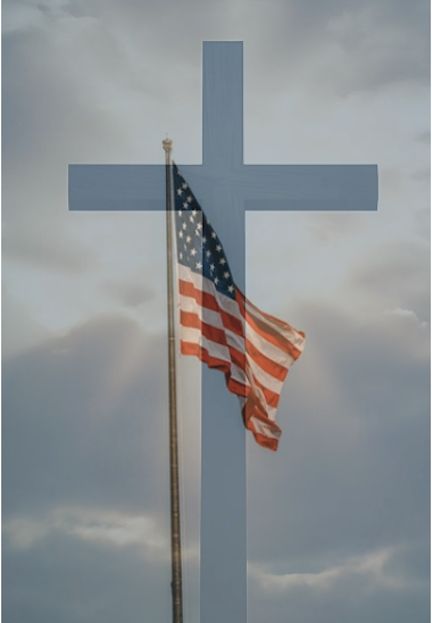Salad Bar Faith
Some people approach what they choose to believe like they would a salad bar. They pick and choose what they like and disregard the rest. The problem with this approach is that God doesn’t give us a choice of what to believe but of whether to believe. We must be careful not to confuse these two things.
For example, people take issue with such things as whether or not God created everything in just six twenty-four-hour days, or whether there was a literal Adam and Eve, or whether Noah preserved all land animals during a worldwide flood, or whether Jesus is the only way to heaven. These things are questioned by some Christians even though they are presented forthrightly in the text of Scripture.
Nevertheless, many feel free to amend what God has said and still call it faith!

Of course, we can believe whatever we choose. But when we choose to contradict what God has communicated in His word, we have chosen doubt over faith. Once again, God doesn’t give us a choice of what to believe but whether to believe!
So, the next time someone scoffs at you for believing the Bible, explain to them that God hasn’t given you the choice of what to believe but whether to believe, and you have chosen faith.
"All Scripture is inspired by God and is useful to teach us what is true and to make us realize what is wrong in our lives. It corrects us when we are wrong and teaches us to do what is right" (2 Timothy 3:16, NLT).
Keeping Our Eyes on the Banner of Freedom
When the Americans first occupied Manila, many prisoners that had been imprisoned for "political offenses" were set free. One of these crimes, according to the Spanish government, which then ruled the Philippines, was reading the Bible. One day a man came to famed Christian missionary Dr. Homer Stuntz, and asked to see him in strict privacy. He then asked in a whisper if it were true that he could now read his Bible without danger of imprisonment. Dr. Stuntz took him to the door and asked him to look at the American flag floating near by. Then he said, "So long as you see that flag floating over your country, you can sit on the ridgepole of your house, if you want to, and read the Bible, and no one can molest you."

Surely the American flag -- the banner of our freedom -- can offer one measure of assurance. Yet there is an infinitely (and eternally) greater banner under which we can claim not just our freedom, but our boldness to excercise such freedom, and that is the Cross of Christ. It is the symbol of our freedom from the bondage of the world, the flesh, and the devil. And it is likewise the symbol of our calling to boldly persist against pressure, persecution, and even penalty.
"It is for freedom that Christ has set us free. Stand firm, then, and do not let yourselves be burdened again by a yoke of slavery" (Galatians 5:1, NIV).
"So if the Son sets you free, you will be free indeed" (John 8:36, NIV).
Ascend the Mountain with Jesus
Denver, Colorado is 5,276 feet above sea level, hence the nickname “Mile High City.”
The altitude there has been credited and blamed for the effects it has on unaware or unprepared visitors from lower elevations. People feel the effects of lower air pressure and decreased oxygen when they arrive; the same goes for visiting athletes.
Sure, they’re better conditioned than Joe or Jane Average, but they’re drawing more on the thin air in their competitive exertions. Many, if they’re honest, have stories to tell about needing rather quickly to find their second wind and taking a few days to acclimate enough that their performances don’t suffer.
Such teams as the Nuggets, Avalanche, Broncos, and Rockies actually employ marketing schemes to plant seeds doubt in visiting teams, amplifying the disadvantages posed to those athletes who are not properly altitude trained. For example, at Ball Arena, there is signage where visiting teams enter and exit noting the city’s altitude. The numbers 5,280 are printed right on the court, near each free-throw line. The video board during introductions welcomes the road team with an ominous warning about the difficulty in catching one’s breath. Then, there are large, hazard-orange-and-black placards on display (“Attention: Altitude Warning/Low Oxygen”).
In fact, the intimidating marketing is right there in the name ... "Empower Field" at "Mile High Stadium"!

In response, we often see oxygen tanks used on the visiting teams’ sidelines to help them try to catch their breath.
There is a whole school of athletic training based on high-altitude workouts. Olympic athletes routinely seek out facilities in Denver and Colorado Springs to boost their oxygen efficiency, and countless trainers and gyms simulate the effects with dedicated breathing equipment.
In Matthew 5, we see the Lord ascend up the mountainside to preach his most famous, and frankly, one of his most challenging sermons — aptly named the Sermon on the Mount. He wasn't bringing a milquetoast message of "peace, love, and hippy beads." No, he was bringing a challenging message of radical transformation which was not for the faint of heart and would require spiritual training and preparedness.
The disciples went up the mountain with Jesus. To go up the mountain is to risk one’s balance: our ears might pop; we might get dizzy; we might trip. We might hear something we cannot handle. Making the climb is the first step, and it is already a commitment. Staying on the summit and realizing we could do even more requires more courage, and letting that experience transform us, transfigure us, can be scarier still. But the effort is worthwhile. The vista is gorgeous.
To receive this kind of message we must spiritually train to make the best use of the "air" up there — Jesus' words of truth and life. Afterall, "All Scripture is breathed out by God and profitable for teaching, for reproof, for correction, and for training in righteousness, so that the servant of God may be thoroughly equipped for every good work" (2 Timothy 3:16-17, NIV).